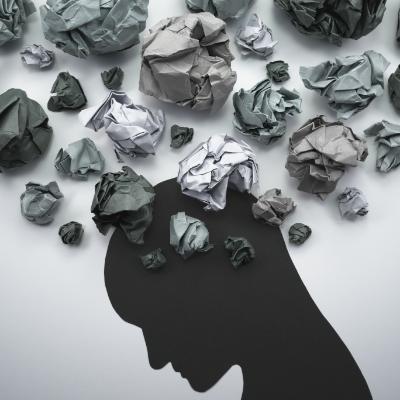Did you know that methamphetamine abuse in the United States is rising? Meth addiction can ruin relationships and destroy lives, making it one of our nation’s most serious public health crises.
BlueCrest Recovery has programs for substance abuse treatment in New Jersey at Woodland Park that help our clients overcome the isolation, shame, and trap of drug dependence. With a holistic approach to evidence-based therapies, we can keep our clients engaged and fulfilled while they learn the skills to help them stay sober. If you or a loved one struggles with meth, don’t wait to get help. Learn more about our meth rehab in New Jersey by contacting our team at 888.292.9652 today.
About Methamphetamine

The origins of methamphetamine—often called “meth,” “crystal meth,” and “speed”—as an illicit drug date back to the early 20th century, when it was used for medical purposes. It is now a Schedule II prescription drug meant only for treating certain medical conditions. For example, methamphetamine hydrochloride tablets—available under the trade name Desoxyn—are occasionally prescribed to treat obesity and attention-deficit/hyperactivity disorder (ADHD). However, these uses are minimal. Most of the meth used in the U.S. is illicit and highly addictive. People who use meth often become addicted to the drug and can use the help of a meth addiction treatment program to get sober.
Methamphetamine can cause serious health problems and lead to addiction faster than other drugs. Its effects can range from mild anxiety and confusion to heart attack or stroke. It is alarming that methamphetamine is a powerful stimulant now widely used as a recreational drug.
Meth can be administered through injection—intravenous, intramuscular, or subcutaneous— or smoking, snorting, swallowing, and even insertion as a suppository. Smoking is the most common method of administration among recreational users, although intravenous injection is known to produce the fastest effects on the human body. Users typically experience a high that lasts up to 16 hours.
The Dangers of Meth Abuse
Whether used recreationally or for medicinal purposes, meth is highly addictive and, therefore, very destructive to drug users. Medical professionals are expected to exercise extreme caution when prescribing it to patients and only when alternative treatments have proven ineffective.
- The unwanted consequences associated with meth abuse are numerous and include:
- Dangerous increases in blood pressure, body temperature, and heart rate
- Cognitive impairment, depression, anxiety, aggression, and paranoia
- Infertility in both men and women
- Liver damage from long-term use of the drug
- An increased risk of stroke or heart attack
- Damage to the heart, lungs, and kidneys
At BlueCrest Recovery, we understand that addiction is a chronic brain condition and appropriately treat it as such. Our evidence-based therapies offer an effective approach to teaching clients how to manage cravings for meth and stay sober for life. With group and individual counseling, medication management, recreational activities, and lifestyle coaching, our meth rehab in New Jersey provides an individualized approach to recovery. But how do you know if you or someone you care about needs rehab for meth in New Jersey?
Signs of Meth Addiction
Methamphetamine has euphoric properties. Users often report increased energy and mental alertness, sometimes to the point of grandiosity and diminished appetite. It also has aphrodisiac effects, with users usually retaining high sexual interest and performance for extended periods.
Meth is associated with a variety of unpleasant physical side effects, including the following:
Long-term use of meth is associated with an increased incidence of anxiety, depression, and psychosis. Some users begin to experience seizures. High-risk sexual behavior is also common, accounting for the heightened prevalence of sexually transmitted infections among meth users.
Adverse Effects of Long-Term Meth Abuse
Long-term speed addiction can have lasting—sometimes permanent—adverse effects on the human brain. Meth is a potent stimulant of the serotonin and dopamine systems of the central nervous system (CNS). Serotonin and dopamine are neurotransmitters responsible for various functions in the human body, including regulating psychological states.
Chronic Mood Disorders
With continued abuse of meth, the user can experience chronic mood disorders connected to the disruption of normal neurotransmitter processes. Many users become prone to chronic irritability and aggressive behavior.


Brain Damage
Long-term meth use puts the abuser at increased risk of a cerebral hemorrhage. Meth increases blood pressure and heart rate, which can lead to stroke-like symptoms. In addition, meth use can cause physical or psychological damage, resulting in permanent brain damage.
Psychosis
Meth users often experience bouts of paranoia, delusions, and hallucinations. These “meth bugs” are caused by prolonged changes in neurotransmitter activities, leading to drug-induced psychosis.


Damaged Relationships
Chronic meth users often find themselves in a cycle of drug use, followed by an inability to recover from the effects of the drug. This can damage relationships with family members, friends, and romantic partners.
Find a Meth Addiction Treatment Program in New Jersey at BlueCrest Recovery
Recognition is the first step toward recovering from meth addiction. The next step is finding the right drug treatment programs. BlueCrest Recovery is a leading provider of meth rehabilitation services in New Jersey. Our experienced team provides comprehensive, evidence-based therapies to help our clients overcome addiction struggles and begin their journey toward recovery.
If you or someone close to you suffers from substance abuse problems, it’s essential to seek professional help immediately. Meth addiction treatment requires a holistic approach confronting recovery’s physical, emotional, and spiritual aspects. From medically supervised withdrawals to intensive outpatient counseling, it involves a team of professionals and evidence-based approaches.
BlueCrest Recovery Center provides a safe and comfortable methamphetamine rehab in New Jersey for those seeking help. Our meth addiction treatment program includes physical, spiritual, and behavioral care. Contact us at 888.292.9652 as soon as possible to give yourself or your loved one a chance at a new life.


